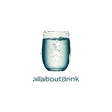No, Cats should not drink raw milk because it can contain harmful bacteria and lactose that most cats cannot digest properly.
While many cats enjoy the creamy taste, raw milk can lead to diarrhea, stomach upset, or infections. Safer alternatives include lactose-free cat milk or clean water to keep your pet healthy and hydrated.
Can Cats Drink Raw Milk?
Many cat owners assume that milk — especially raw milk — is a natural treat for their pets. After all, it’s unprocessed and often promoted as healthier than pasteurized milk. But can cats drink raw milk safely? The short answer is no. While raw milk may seem “closer to nature,” it often carries harmful bacteria like E. coli, Salmonella, and Listeria, which can cause serious illness in cats.
Most adult cats are also lactose intolerant, meaning their digestive system can’t properly break down milk sugar. Understanding these risks is key before offering your feline any type of unpasteurized milk.
What Exactly Is Raw Milk?
Raw milk is milk that hasn’t gone through pasteurization — the heating process that kills harmful bacteria. While many people believe raw milk is more “natural” and nutrient-rich, it also comes with a higher risk of contamination.
For cats, that risk is even greater because their immune systems are more sensitive than humans’. Raw cow or goat milk may contain dangerous microorganisms like Salmonella and E. coli, which can lead to vomiting, diarrhea, and dehydration.
Even if your cat seems to tolerate milk, the potential bacterial load in raw milk makes it unsafe. Pasteurized or lactose-free cat milk products are a much safer alternative if you want to give your pet a milky treat without health risks.
Can Cats Digest Raw Milk?
Most adult cats are lactose intolerant, meaning they lack the enzyme lactase, which helps break down lactose — the natural sugar in milk. When cats drink raw milk, the undigested lactose ferments in their gut, leading to bloating, gas, stomach pain, and diarrhea.
Some people assume raw milk is easier to digest because it’s unprocessed, but that’s a misconception. The lactose content in raw milk is nearly identical to that of pasteurized milk, so it still poses the same digestive issues.
Even kittens, who naturally drink milk from their mothers, can develop lactose intolerance after weaning. Offering raw cow or goat milk won’t provide any nutritional benefits to adult cats and can instead disrupt their digestive system. If your cat loves milk, lactose-free or specially formulated cat milk treats are the only safe options.

Potential Risks of Feeding Raw Milk to Cats
Feeding raw milk to cats carries several health risks that go beyond simple stomach upset. Raw milk can harbor harmful bacteria like Salmonella, E. coli, and Listeria, all of which can cause serious infections in both cats and humans.
Since a cat’s immune system isn’t designed to handle such pathogens, even a small amount of contaminated milk can lead to vomiting, diarrhea, fever, and dehydration.
Moreover, raw milk’s high fat content can cause digestive imbalance and may contribute to long-term issues like obesity or pancreatitis in indoor cats. Cats don’t gain any extra nutrition from raw milk — they receive all necessary nutrients from a balanced cat diet. In short, the risks outweigh any potential benefits, and raw milk should be avoided entirely to prevent foodborne illnesses and digestive distress.
Alternatives to Raw Milk for Cats
| Alternative Option | Description | Benefits for Cats | Notes/Precautions |
|---|---|---|---|
| Lactose-Free Cat Milk | Specially formulated milk with reduced or removed lactose. | Gentle on feline stomachs, maintains creamy flavor. | Choose pet-safe brands only. |
| Formulated Pet Milk | Commercial milk substitute designed for cats. | Provides nutrients similar to milk without causing digestive upset. | Avoid products with added sugar. |
| Fresh, Clean Water | The healthiest hydration source for cats. | Keeps cats hydrated and supports kidney health. | Change water daily for freshness. |
| Flavored Water (Tuna Juice or Low-Sodium Chicken Broth) | Adds mild flavor to encourage drinking. | Increases hydration, especially in picky cats. | Use only small amounts of tuna juice or broth. |
| Goat’s Milk for Pets | Easier-to-digest option often fortified with probiotics. | Supports gut health and provides variety. | Ensure it’s labeled safe for cats. |
FAQs About Cats and Raw Milk
1. Can cats drink raw milk safely?
No, cats should not drink raw milk. It can contain dangerous bacteria like E. coli, Listeria, or Salmonella, which cause digestive issues or even serious illness.
2. What happens if my cat drinks raw milk by accident?
A small amount may only cause mild stomach upset, but monitor for symptoms like diarrhea, vomiting, or lethargy. If symptoms persist, contact your veterinarian immediately.
3. Is boiled or pasteurized milk safer for cats?
Yes, pasteurized milk is safer because it’s heat-treated to remove harmful bacteria. However, many cats are lactose intolerant, so it should still be given sparingly.
4. What’s the best substitute for milk?
Lactose-free cat milk or plain water are the best options for hydration and digestive health.
5. Why do cats love milk if it’s not good for them?
Cats are attracted to the fat and creamy texture, not because they need it nutritionally.





